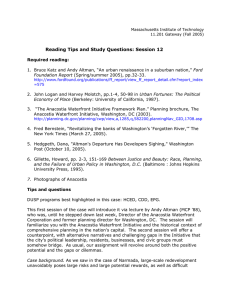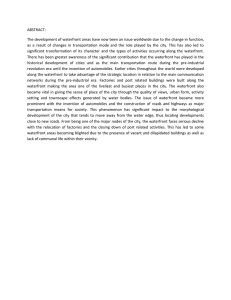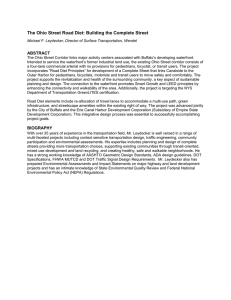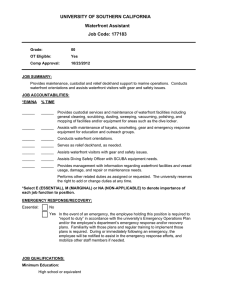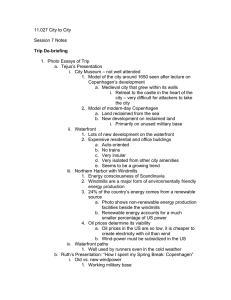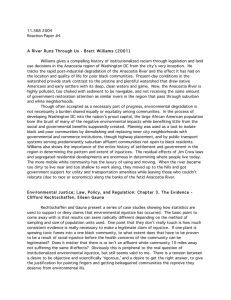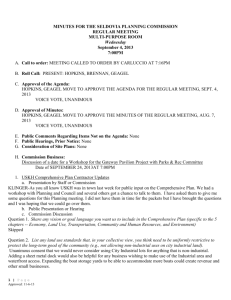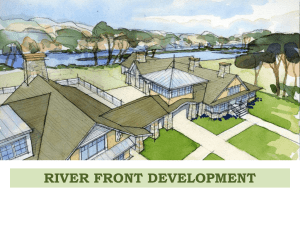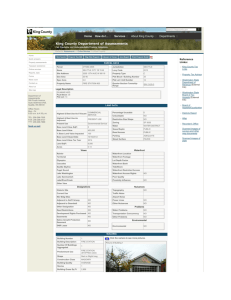Unit Four: The Growth Machine and the Public Interest -... the Anacostia Waterfront in Washington, DC (Prof. Altman)
advertisement
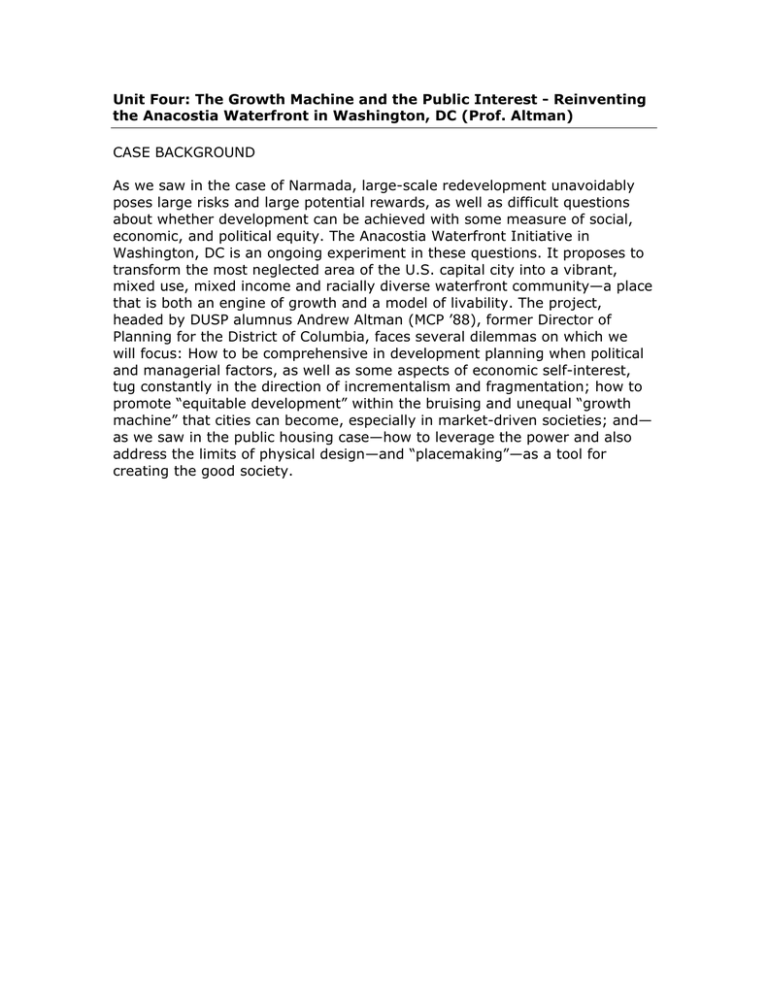
Unit Four: The Growth Machine and the Public Interest - Reinventing the Anacostia Waterfront in Washington, DC (Prof. Altman) CASE BACKGROUND As we saw in the case of Narmada, large-scale redevelopment unavoidably poses large risks and large potential rewards, as well as difficult questions about whether development can be achieved with some measure of social, economic, and political equity. The Anacostia Waterfront Initiative in Washington, DC is an ongoing experiment in these questions. It proposes to transform the most neglected area of the U.S. capital city into a vibrant, mixed use, mixed income and racially diverse waterfront community—a place that is both an engine of growth and a model of livability. The project, headed by DUSP alumnus Andrew Altman (MCP ’88), former Director of Planning for the District of Columbia, faces several dilemmas on which we will focus: How to be comprehensive in development planning when political and managerial factors, as well as some aspects of economic self-interest, tug constantly in the direction of incrementalism and fragmentation; how to promote “equitable development” within the bruising and unequal “growth machine” that cities can become, especially in market-driven societies; and— as we saw in the public housing case—how to leverage the power and also address the limits of physical design—and “placemaking”—as a tool for creating the good society.
